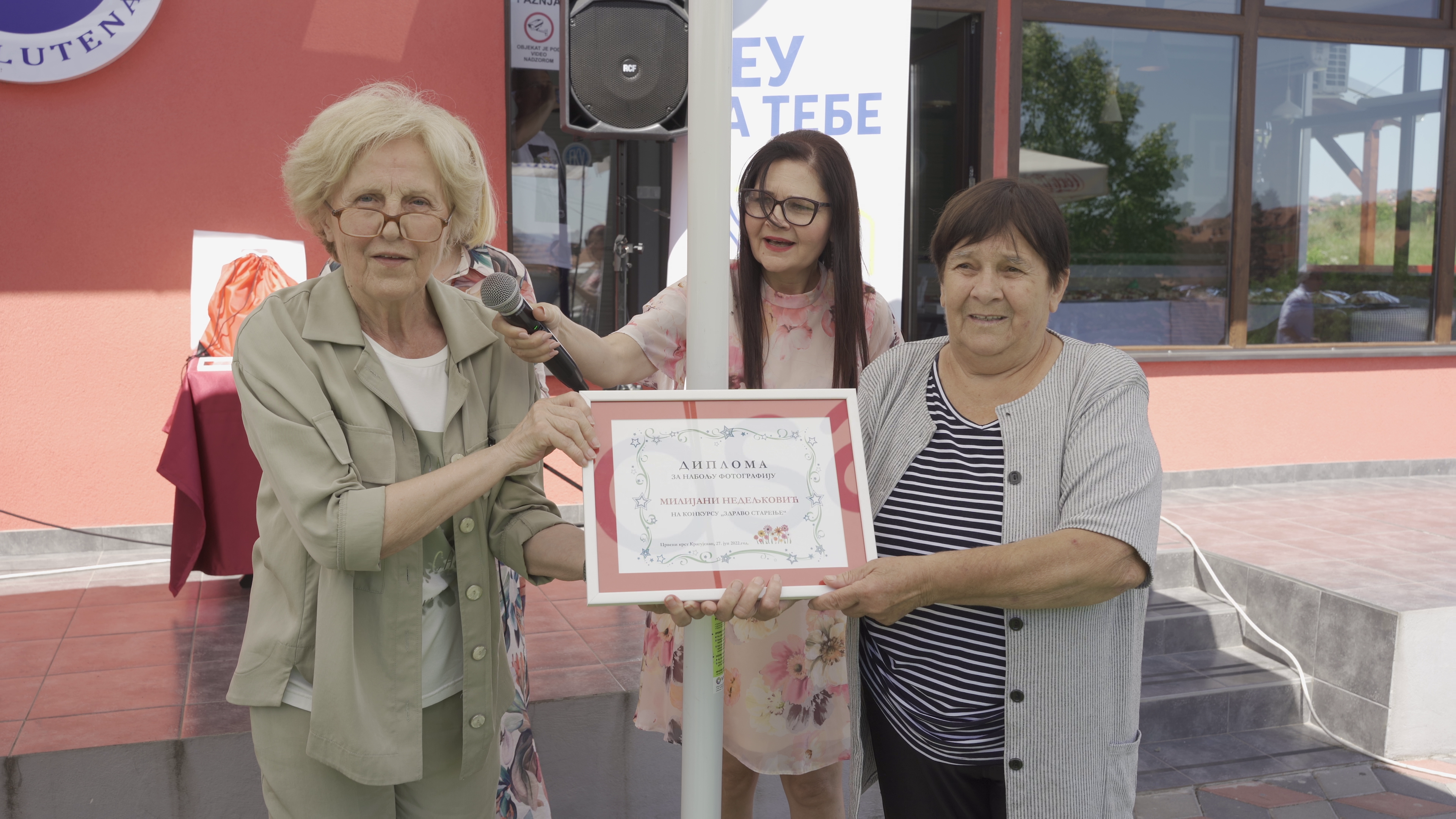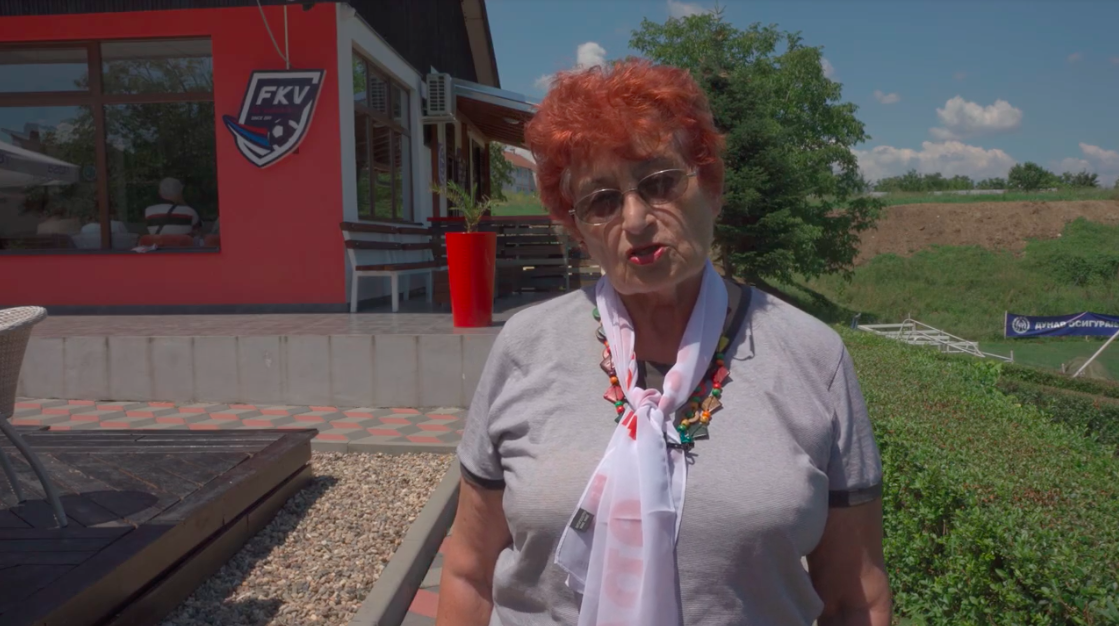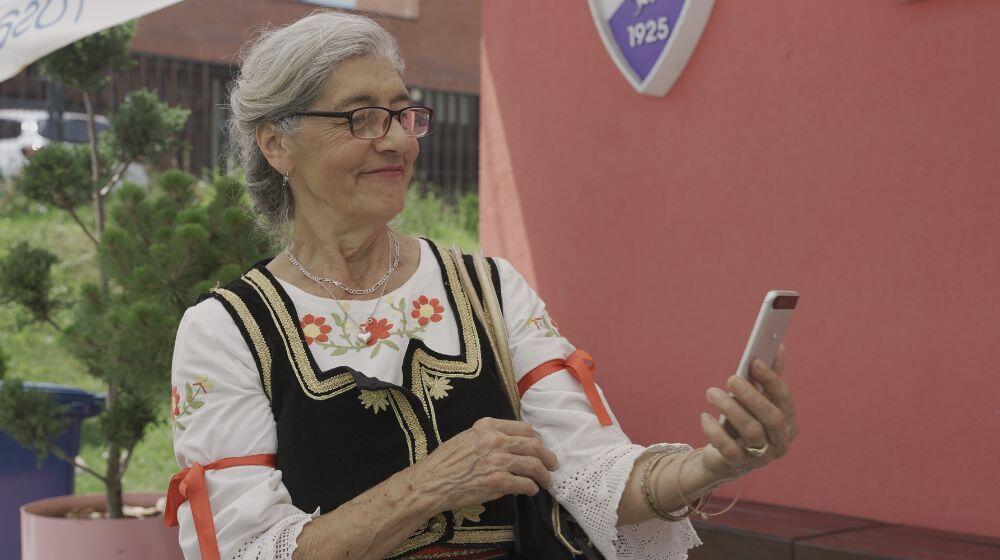One of the most important lessons we have learned during the past two years of the pandemic concerns the extremely vulnerable position of older persons in our society. The pandemic has exposed their loneliness and social isolation, as well as all the obstacles that stand in the way of their active involvement in social and cultural life.
The United Nations Population Fund in Serbia, as part of the program "EU Support for Social Housing and Active Inclusion", financed by the European Union, and implemented by The United Nations Office for Project Services (UNOPS), has recognized digital literacy as a tool to combat loneliness among older people. , older people in Serbia received smartphones, and famous actress Rada Djuricin, in several useful tutorials, explained how to use Viber, Skype and Facebook applications.
We spoke to three older women about the changes in their lives after being given the opportunity to digitally connect with their family, friends and the rest of the community.
When you got a mobile phone and started using the camera, what was the most interesting thing for you to take photos of?
Milijana: Well, everything! In the beginning, I usually turned the camera by mistake and took a picture of myself, until I learned a little. But then I practiced and won the competition for the best photo in the Corner for Quality Aging in Kragujevac.
Miroslava: I'm not on social media, let me tell you right away, but I photograph my grandchildren and my garden.

Milijana Nedeljković, winner of the "Healthy Aging" competition, for the best photo
For what do you use your mobile phone the most?
Milijana: I didn't even know that I needed it this much: I'm alone at home, my daughters are married and don't live here. They come once a week, on weekends, to visit me... But now we talk regularly on the phone and I feel less lonely during the work week.
Ljiljana: My children live in the Netherlands, they are not here, and I really miss hanging out and talking to them... But it's not enough for me to just hear from them, I also like to see them, and now I can do that via video chat.
Miroslava: I mostly use Viber and Skype, through them I communicate with my family and friends, and I also read the news on my phone, and follow what is happening in the country.
Has having a smartphone made your life easier?
Ljiljana: I am much more involved in the activities in the city, we organize a schedule of meetings in the cultural society where I play, we also exchange some poems we read through Viber, I know what is happening and when... It is much better than during the pandemic.
Miroslava: It's easier. You know that phrase: "a joy that is shared is a joy made double, a sorrow shared is a sorrow split in half"? When you share what you have with someone, whether it's joy or sadness, you feel much better. Because you shared, as young people would say. Well, that's what my phone is for and that's how it helps me the most.

Miroslava Matić, an activist who advocates the rights of older people, twice participated in the United Nations conferences against ageism in New York
***
Activities of the Corner for Quality Aging are part of the program "EU Support for Social Housing and Active Inclusion" (EU SHAI), financed by the European Union, and implemented by The United Nations Office for Project Services (UNOPS), in cooperation with the United Nations Population Fund (UNFPA) in Serbia.


